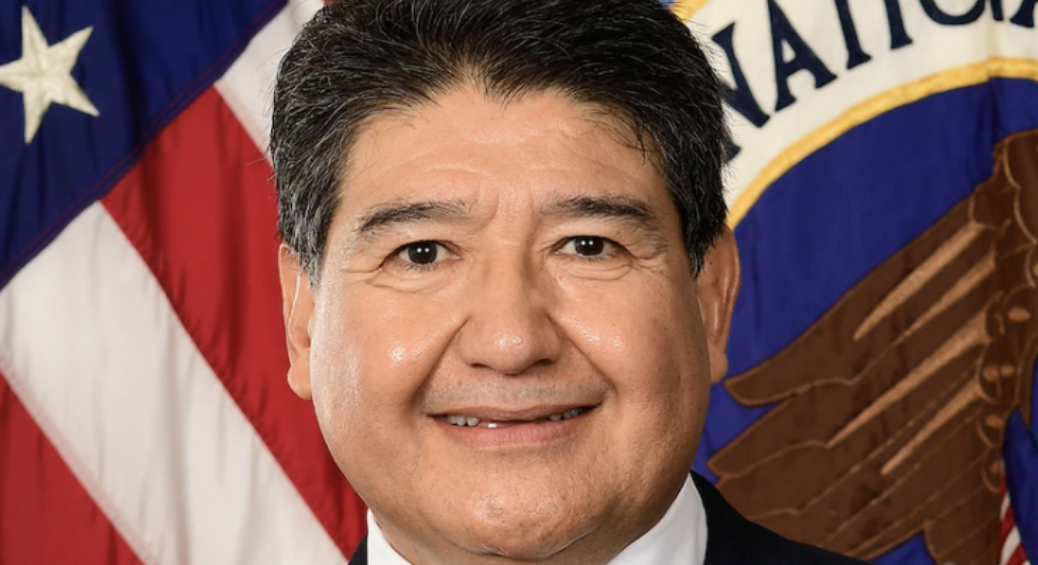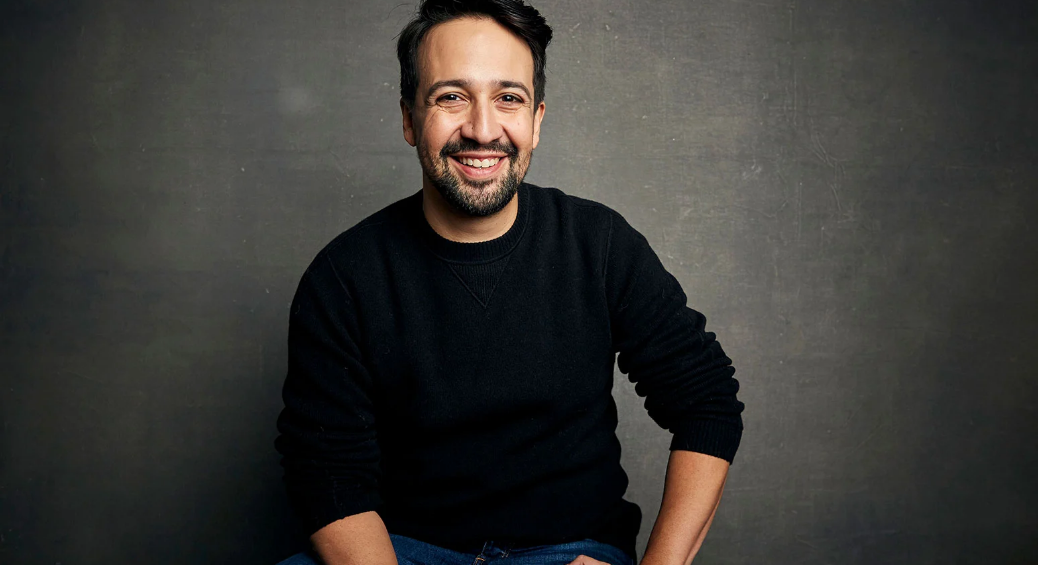MARCH, 2022
The U.S. Latino Whose Job Is To
Look Into The Future, And Then Shape It, To Keep You Safe
Six months ago, Gilbert V. (Gil) Herrera was appointed as the Director of Research at the National Security Agency (NSA), where he is now responsible for the agency’s world-class scientific research to develop new and innovative techniques and technologies to enable Cybersecurity missions of NSA/CSS, as well as joint-authority missions of the Intelligence Community and Department of Defense.
Mr. Herrera joined NSA after serving nearly 40-years at Sandia National Laboratories, where his last assignment was a Laboratory Fellow, only one of 15 such appointments in Sandia’s 70-year history. In 2020, Mr. Herrera was appointed to the U.S. National Quantum Initiative Advisory Committee, which advises the nation’s highest offices on matters concerning quantum information science.
In his new role as Director of Research, Gil has a dual mission: Secure American systems, and spy on the rest of the world. He explains that the rate of technological change is accelerating and becoming less predictable and that the rise of new technologies is both a threat and an opportunity.
He says his teams must provide the technologies that allow them to interrogate the huge amounts of information brought to them, and must also help monitor the kinds of systems that are now emerging as a result of great power competition in the world.
As a recognized leader within the Department of Defense, Mr. Herrera works across cultural and institutional barriers. “I am thrilled to re-join the NSA team,” he said. “I look forward to working with this world-class team to find innovative solutions for some of the Nation’s hardest problems.”
Lin-Manuel Miranda Could Become The Youngest EGOT Winner
EGOT is the acronym for Emmy, Grammy, Oscar, Tony. Winning all four is considered the greatest honor in entertainment. Lin-Manuel Miranda could become the youngest EGOT winner later this month if he wins the Oscar for Best Original Song. “Dos Oruguitas” from Encanto was nominated last month, and if it wins, Miranda, at age 37, will join the elite ranks of 16 entertainers who have earned an Emmy, Grammy, Oscar, and a Tony Award.
The current youngest member of the EGOT club is songwriter Robert Lopez who is 39. Miranda faces stiff competition in Best Original Song category as the other nominees include “No Time to Die” from No Time to Die; “Be Alive,” from King Richard; “Down to Joy,” from Belfast and “Somehow You Do” from Four Good Days. Miranda is another example of the outstanding U.S. Latino talent in Hollywood. Two of the 16 EGOTs are Latino: Robert Lopez as noted, and Rita Moreno.
The winner will be announced during the 94th Oscars ceremony on March 27 at the Dolby Theatre in Hollywood.
Hispanic Marketing Council Honors Kellogg’s As The 2022 Marketer Of The Year
Kellogg’s was named the 2022 Marketer of the Year last month by the Hispanic Marketing Council. To be considered for this prestigious award, companies had to demonstrate a top-down commitment to multicultural marketing and allocate spending commensurate with the Hispanic opportunity.
“Kellogg’s has demonstrated multi-faceted Hispanic marketing excellence,” said HMC Chair Gonzalo Del Fa, president of GroupM Multicultural. “Not only have they increased their Hispanic budgets, but they also value their culture marketing specialists and have reaped the rewards of leading with Hispanic cultural insights.”
Chief Marketing & E-Commerce Officer for Kellogg’s North America, Julie Bowerman, said, “Kellogg’s has been increasingly active in the U.S. Hispanic market since 2013, and our commitment has grown year over year with brand strategies led by Hispanic insights. We are proud our work has been recognized by the HMC and this further empowers us to continue our initiatives to support and elevate the Latino community, both within and outside our company,”
Kellogg’s has committed to U.S. Hispanic and multicultural market growth across the company. This top-down commitment from senior leadership is evidenced in the creation of Kellogg’s company-wide teams to integrate multicultural insights. These efforts have demonstrated sales growth, not only within the Hispanic target but across entire categories for many Kellogg’s brands.
Harvard Law Review Names A Mexican American
It’s First Latina President
Priscila Coronado is making history as the 24-year-old now heads a law journal whose first Black president was Barack Obama in 1990. She is the first Latina named to the top of one of the most prestigious U.S. law journals in the country for the first time in its 135-year history.
Law reviews are staffed by the top students at U.S. law schools, who are often recruited for judicial clerkships and other prestigious jobs in the profession. Legal and political luminaries who have worked at the Harvard Law Review include President Barack Obama and three serving members of the U.S. Supreme Court who have served as editors.
As reported by Reuters on NBC, Coronado said that her experiences growing up as a Mexican American have informed her perspectives and that she wanted to “work hard to show how being a Latina is an important part of who I am.”
Coronado was born and raised in California and is the daughter of Mexican immigrants. She is the first in her family to attend college and earned her undergraduate degree from the University of California Los Angeles.
U.S. Latino Small Businesses Are Essential To Our Country’s Economic Growth In 2022
These are areas of our economy where U.S. Latinos already have a significant business owner presence. Transportation and Warehousing, for example, has been a high-growth area for U.S. Latino entrepreneurs who are working to engage in and help resolve the supply chain issues in our country. In other words, just as there appears to be a correlation with new business applications and states with larger U.S. Latino populations, there also appears to be a correlation with the business sectors attracting the most applications and the sectors with high U.S. Latino involvement.
It has now been officially reported that Anglo males are now the minority of business owners in the United States. This has been a shift driven by fast growth in Latino-owned and women-owned businesses. Given the current historic record number of new business applications, that shift will only continue to grow.
A review of January 2022 business activity in the U.S. reinforces that entrepreneurs are going to where new job growth appears. Many of the sectors that are experiencing the largest employee gains correlate with those that have had the newest business applications.
Leisure and hospitality, for example, has added an average of 196,000 jobs each month over the last 12 months, well ahead of any other industry as it rebounds from the worst of the pandemic.
Retail had healthy job gains in January as employers added 61,400 to payrolls. Health and personal care stores hired 11,300, department stores added about 12,000 and warehouse clubs rose by 16,700.
Transportation and warehousing also posted a strong January with a gain of 54,200 jobs. The U.S. economy hired 7,500 truckers in January 2022, the third-best month of the last 12.
January was a strong month for the broad professional and business services sector, which added 86,000 jobs, with healthy gains among computer system designers and management consultants.
Speaking of technology, among employer businesses (those with at least one employee other than the owner), 19% of Latino-owned businesses report “developing and selling a technology or software product,” compared to 14% among Anglo-owned businesses. These findings from the Stanford State of Latino Entrepreneurship report were validated by data from the U.S. Census Annual Business Survey.
The study also found that Latino business owners are just as likely as Anglo business owners to start tech companies — and that they often provide more benefits and growth opportunities to their employees. As primary examples:
- 55% of Latino-owned firms reported providing health insurance to employees, compared with 44% of Anglo-owned businesses
- 48% of Latino-owned firms reported providing paid holidays to employees, compared with 43% of Anglo-owned businesses
- 29% of Latino-owned firms reported providing retirement benefits to employees, compared with 23% of Anglo-owned businesses
Latino entrepreneurs are also more likely than their Anglo counterparts to have made proactive changes during the pandemic. The most frequently cited are:
- Improved technology – 21% for Latino-owned businesses vs. 16% for Anglo-owned
- Moving into e-commerce – 18% vs. 13%
- Improving client outreach -18% vs. 14%
A recently released Biz2Credit Latino-owned Business Study found that the average annual revenue for Latino-owned businesses was greater than for non-Latino-owned businesses in 2020/2021. Latino-owned firms grew revenue at an average of 25 percent per year while white-owned businesses grew revenue at 19 percent.
Unfortunately, even with these superior performance metrics, Forbes reported the funding rate for Latino-owned companies was slightly lower than the funding rate for non-Latino-owned firms in 2020/2021. Most concerning however, the average loan size for Latino-owned firms was $47,031, compared to $81,156 for non-Latino-owned firms in 2020/2021.
Stanford’s report found that only 20 percent of Latino-owned businesses that applied for national bank loans over $100,000 obtained funding, compared to 50 percent of Anglo-owned businesses. Finally, we know from a 2021 Bain & Company study that only 1% of total investments from the top 25 venture capital and private equity firms went to Latino-owned businesses.
So, what do we know about the state of small business in the New Mainstream Economy? We know that U.S. Latino small business growth has been two to four times greater than for all other small businesses. That would indicate that U.S. Latino entrepreneurs continue to be driving our current record growth in small business applications. Given the sectors represented by those applications, U.S. Latinos will continue to drive actual business formations in response to market demand.
It appears a growing number of new owner-operator businesses will be online and service businesses as opposed to brick and mortar. We also know that among the businesses with employees, Latino-owned businesses are more likely to be technology-related than Anglo-owned, which means the Latino contribution to our country’s business revenue is diversifying beyond traditional assumptions.
We can expect the success rate of these new Latino-owned businesses to be even greater than in the past, given many of them are in high-demand areas such as supply chain, healthcare, and accommodations.
We now have data that demonstrates U.S. Latino-owned businesses tend to be more profitable, which has continued to be true even during COVID. Unfortunately, we know that, based on the Stanford study, only 20 percent of Latino-owned businesses are far less likely to benefit from loans or capital investments, both important sources of capital to facilitate them growing to their full potential. We know last year alone that cost the U.S. economy over $2.6 trillion.
Given all of this, it is clear that 2022 has become a critical year for our country’s economy, as its dependence on U.S. Latino entrepreneurs grows even greater and becomes an essential component of our economic recovery from COVID, and sustained growth throughout the 21st century.




